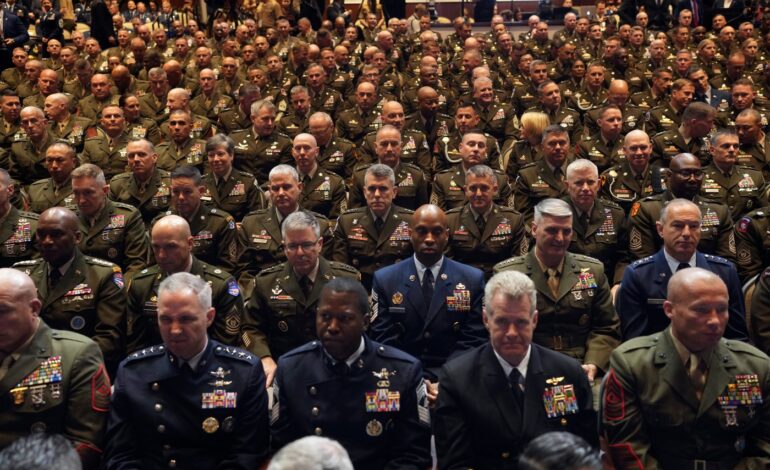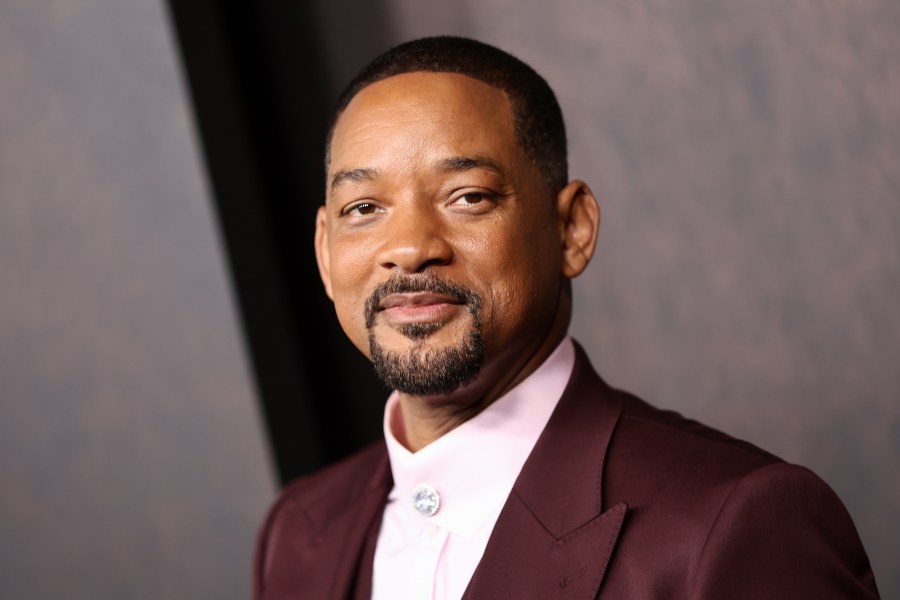Trump Suggests Military Training in U.S. Cities Amid Tensions

President Donald Trump made headlines last week by suggesting that American cities could serve as “training grounds” for the military to combat what he termed “an enemy within.” This remark, made during a speech at Marine Corps Base Quantico, raised eyebrows, particularly in light of his recent discussions regarding the deployment of National Guard troops to cities like Chicago and Portland. The president’s comments come against a backdrop of increasing tensions in urban areas, as he continues to advocate for a more aggressive approach to crime and immigration enforcement.
Trump’s address took place during an unusual gathering of senior military leaders, including admirals, generals, and top sergeants, called together on short notice by Secretary of Defense Pete Hegseth. While the meeting was intended to focus on military matters, Trump appeared to seize the opportunity to engage with the commanders in a manner more reminiscent of a political rally than a military briefing. The absence of applause from the audience underscored the divergence between political theater and military protocol, which typically avoids overt displays of political support or dissent.
Hegseth’s own remarks added to the unusual atmosphere. He criticized military leaders for being out of shape, stating it was “completely unacceptable to see fat generals and admirals.” His rhetoric, laden with cultural references, seemed aimed more at energizing a political base than addressing the concerns of military leadership. As he criticized various societal issues, including “wokeness” and diversity initiatives, one could sense that the gathering of military leaders was not the intended audience for such commentary.
As the day unfolded, Hegseth and Trump shifted their focus towards disparaging liberal policies and threatening to take military action in urban centers. Hegseth’s assertion that the military should be liberated from “stupid rules of engagement” raised concerns about the implications of such statements. Although the military ethos emphasizes defending the Constitution and maintaining a non-political stance, Hegseth’s remarks hinted at a troubling ideological bent shaping military operations under his leadership.
During his address, Trump stated, “We should use some of these dangerous cities as training grounds for our military,” specifically naming Chicago and criticizing the city’s governor as “stupid.” This kind of rhetoric has sparked fears about the potential for a militarized response to domestic issues, prompting questions about the boundaries of military engagement within U.S. cities.
The implications of Trump’s statements are significant. They challenge the very fabric of constitutional governance and raise concerns about the potential for military action against American citizens. The gravity of such a proposition cannot be overstated; it presents a scenario where military force could be deployed against populations in urban settings, a situation that many view as a dangerous precedent.
In reflecting on these developments, one is reminded of the words of cartoonist Walt Kelly, who famously stated, “We have met the enemy and he is us.” This phrase serves as a poignant reminder of the internal challenges facing democratic institutions as they navigate the complexities of leadership and governance in these turbulent times.
The military’s role in American society is undergoing scrutiny, and the events of the past week highlight the urgent need for dialogue about the appropriate boundaries between civilian governance and military authority. As the nation watches closely, the implications of Trump’s rhetoric will undoubtedly shape the discourse around military engagement in domestic affairs for the foreseeable future.






